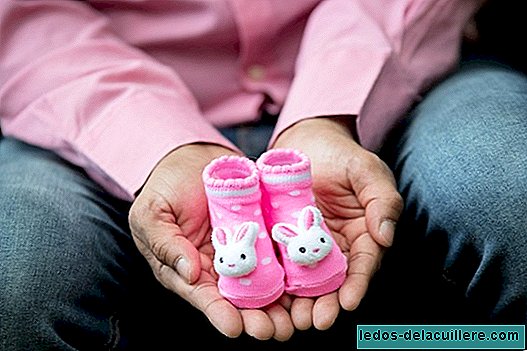It is often mistakenly thought that while the mother is breastfeeding, she cannot get pregnant. But the reappearance of the rule after childbirth is not the same in all women, so if precautions are not taken, pregnancy can occur during breastfeeding. Do you know the best methods contraceptives during breastfeeding? They are compatible? Does it depend on the methods? They are needed? Let's see it in detail.
The usual thing is that ovulation does not occur in the first weeks after delivery, but we never know when it will resume, and therefore when there is a possibility of pregnancy again. There are women who, even with exclusive breastfeeding, have had the period before four months.
It is also often said that exclusive breastfeeding is effective in preventing pregnancy if you breastfeed at least every three hours during the 24 hours you have the day. But as we move away from the date of delivery, cases of unplanned pregnancies are found if some contraceptive method is not used.
Surely it will take a few weeks for the woman to have or want to have sex again, the puerperal period is complex and highly variable. In any case, hormonal contraceptive treatments are not recommended for the first weeks, being preferable barrier methods As the condom
Barrier contraceptive methods during breastfeeding
The condom, diaphragm and IUD intrauterine device They represent a zero risk for breastfeeding. For the first few times the use of condoms is very appropriate, as it has no side effects for the recent mother or the baby, nor does it influence hormonal changes.
The diaphragm is somewhat more delicate, because in addition to having to use it with spermicidal creams for greater effectiveness, the changes of the vagina after delivery make it necessary to wait until the vagina has been involved to use it and make sure the size with the new state.
The intrauterine device is a highly effective contraceptive method and compatible with breastfeeding. For the placement of the IUD it is recommended to wait until the uterine involution has been carried out after delivery (about six to eight weeks, even after cesarean deliveries).
Hormonal contraceptive methods during breastfeeding
Among the hormonal methods, the use of estrogen contraceptives is not recommended that decrease milk production and shorten the period of breastfeeding. As we read on e-lactancia.org, it is better to use contraceptives with only progestogens or with the minimum amount of estrogen.
And it is that contraceptives prepared with progesterone only (injectable or orally, pills) do not seem to have an adverse effect on breastfeeding. Estrogens (by any route) pass into milk in less than 1% of the maternal dose, and are absorbed by the infant (this amount in milk does not appear to be superior to natural secretions, although its long-term effect was not evaluated, hence the recommendation).
The minipill is a contraceptive similar to the conventional pill but only contains gestagen, (it does not contain estrogen), and does not affect the quantity or quality of breast milk.
Vaginal ring The monthly ring is a hormonal contraceptive method that consists of a ring or ring of plastic material that, placed in the vagina, releases female hormones identical to the contraceptive pill at low and constant doses. But they contain estrogen, so it could interfere with breastfeeding.
There are some rings without estrogen, although it would be necessary to wait for the total uterine involution for placement, and take into account its possible side effects. It is best to ask the gynecologist about the convenience of each method, and having other safer ones, the vaginal ring is probably not the most convenient in the first months after delivery.
Natural contraceptives during breastfeeding
Regarding other natural methods such as the Ogino method or Billings, they are not too reliable during breastfeeding. Regarding the Ogino, during breastfeeding it is very difficult to know what the fertile days are, so “abstinence” based on the ovulatory cycle calendar and fertile days is not reliable.
As for the billings method, vaginal secretions during breastfeeding are not the same as those that occur outside of it, so it is difficult to recognize its characteristics.
The truth is that, given the wide range of contraceptive methods available to couples, it will not be difficult to find the one that best suits their needs without interfering with breastfeeding.
These are the most important data we should know about contraceptives during breastfeeding, and as always we recommend you follow the instructions of your gynecologist, ask any questions, as well as consult the reference website on medications and breastfeeding, e-lactancia.org which in the "Products" section includes contraceptives.











